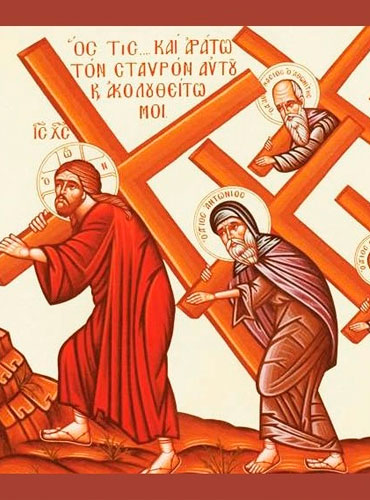Monday of the Fifteenth Week in Ordinary Time –Odd Years – Mt 10:34-11:1
With today’s first reading, we move from the book of Genesis into the book of Exodus, the next phase of salvation history. The author tells us that “a new king, who knew nothing of Joseph, came to power in Egypt.” Biblical scholars debate the meaning of that Hebrew phrase, since it seems that it means more than just that Pharaoh didn’t know Joseph personally; however, it’s unlikely that Pharaoh was ignorant of the very recent history of his people. What’s more probable is that it means that he didn’t care about what Joseph had done; in fact, some Bibles translate that phrase as “a new king, to whom Joseph meant nothing, came to power” (NIV).
Clearly, the new Pharaoh thinks that he is very powerful, and that the world revolves around him and his kingdom and, for a time anyways, it seems that he might be right. The world of the Jews becomes one of suffering and hardship, and they cry out against their treatment.
Yet, in spite of whatever power Pharaoh seems to have, he only yields it because God permits him to have a part in salvation history. When he gives his discourse on salvation history to the Sanhedrin, Saint Stephen summarizes what happened this way: “When the time drew near for the fulfillment of the promise that God pledged to Abraham, the people had increased and become very numerous in Egypt, until another king who knew nothing of Joseph came to power [in Egypt]” (Acts 7:17-18). “When the time for fulfillment drew near,” meaning, when it came time for what God had planned to come to pass, He made use of Pharaoh and his little kingdom and his tiny bit of power to enact His saving designs.
There are two things that we can take away from this, and both are re-iterated in today’s Gospel. First, God’s plans are always good; in fact, they’re always the best, even though they might entail suffering or difficulties. As Christ tells His Apostles: “Do not think that I have come to bring peace upon the earth; I have come to bring not peace but the sword.” However, through these struggles and difficulties, God is working out our salvation.
Secondly, the final say of what really matters in this life belongs to God. As we said, Pharaoh really thought he enjoyed great power, and he cast aside and trampled on Joseph’s memory. It is, then, rather ironic that Joseph is mentioned by name throughout the Bible; his deeds and his role in salvation history are forever remembered throughout the Bible and, as we’ve heard the past weeks, his life is recorded in great detail. Pharaoh is remembered too, but, not in such great detail and, interestingly enough, never with a proper name; he’s always called simply “Pharaoh,” throughout the Old and New Testaments. Scholars aren’t even sure which king of Egypt he was, since all he’s remembered for it being the evil ruler who stubbornly tried to kill the Jews; there’s not enough identifying marks to pinpoint him.
In the Gospel, Christ tells us that God never forgets a good deed: “And whoever gives only a cup of cold water to one of these little ones to drink because he is a disciple– amen, I say to you, he will surely not lose his reward.” A cup of water to a little one: what could be more insignificant? Yet God remembers it and will reward it. We can ask ourselves: are we shortsighted like Pharaoh? Do we have eyes only for this world, and for the rewards of this life? Or do we set our eyes firmly on heaven?
Let us pray, through the intercession of Mary, Queen of Heaven and Earth, for the grace to trust in God’s plans, and the willingness to lose our lives for Christ’s sake.






